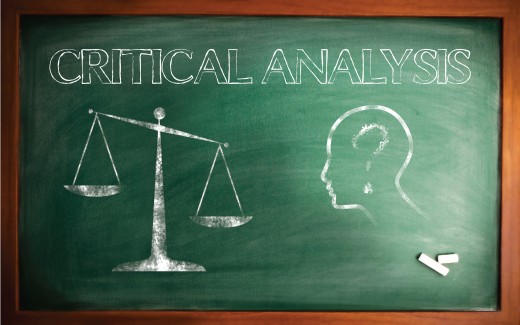 As your educational career progresses and you learn and grow, you will no doubt encounter a number of unique paper writing topics, including your fair share of critical paper assignments. Whether you are a physics major or pursuing a degree in art history, your professors will make you write a critical paper to assess your level of knowledge on a host of subjects.
As your educational career progresses and you learn and grow, you will no doubt encounter a number of unique paper writing topics, including your fair share of critical paper assignments. Whether you are a physics major or pursuing a degree in art history, your professors will make you write a critical paper to assess your level of knowledge on a host of subjects.
Knowing how to write the perfect paper is a skill that every college student needs to master. The work is not as intimidating as it may seem – the best way to succeed is to break the process down and use the paper to showcase your existing knowledge and growing research skills.
The Purpose of the Critical Assignment
No matter what writing subject or the class, the purpose of the critical coursework is to evaluate a chosen piece for your paper. That work can be anything, from a popular film or bestselling novel to a classic work or literature or a beloved painting.
The subject of the critical essay can even be writing about a product (think product reviews). No matter what the subject, the process of writing the paper is always the same. To craft the perfect critical paper you will need to approach the paper with honest words and respond to both it’s positive attributes and its perceived shortcomings.
The Critical Essay Structure & Outline
Most critical assignments will follow the same standard paper format, but it is important to clarify the formatting requirements with your professor before beginning your work. Some instructors have specific requirements for their assignments, and clarifying that information will make your job, and the professor’s, a lot easier.
You will want to start with a thought-provoking and engaging title. Your goal is to catch the eye of the reader, engage their curiosity and make them want to learn more about the subject at hand.
It helps to outline your thoughts before starting the actual paper. The notes you took during your reading and additional research should give you a starting point, and laying out the outline should make fleshing out the critical analysis easier.
The first sentence should set the tone and capture the attention of the reader. Choosing a unique first line is one of the best ways to make your text stand out and showcase your deep knowledge of the subject at hand.
Each paragraph should focus on a specific component of the paper. Break the text up into logical paragraphs and avoid the temptation to cram too much information into a limited amount of space. Start by stating the subject and talking about the work you are responding to. Continue by using the subsequent paragraphs to lay out your arguments, and conclude by restating the subject of the review and summarizing your conclusions.
How and Where are Critical Essays Written?
If your professor has assigned a critical paper as part of a class assignment, you already know part of the answer. These types are routinely used to reinforce the knowledge learned in the classroom and expand upon what the student has learned. The process of crafting the critical essay gives students new insight into the subject matter and allows teaching professionals to assess their level of learning.
What you may not know is that critical arguments exist outside the classroom too. Even if you never set foot in a classroom or take a single college course, you are likely to encounter this unique style of writing.
Many book reviews, and even some online product reviews take the form of critical content. If you have ever checked out a book review on Goodreads or read a review on Yelp!, you may already be familiar with the critical review format.
Critical Analysis and the Review Process
Whether you are reviewing a book you just read, sharing your feelings on a restaurant meal or assessing the value of an article, it pays to approach the subject with a critical eye. That critical analysis is what the review process is all about, and it is a key part of crafting the perfect text piece.
Critical response is a key part of the learning process, but it is also important in the world at large. From marketers trying to fine tune their messages to consumers looking for the best bargains, people from all walks of life pay close attention to critical response and how it impacts everything from commercial success to success in the college classroom.
